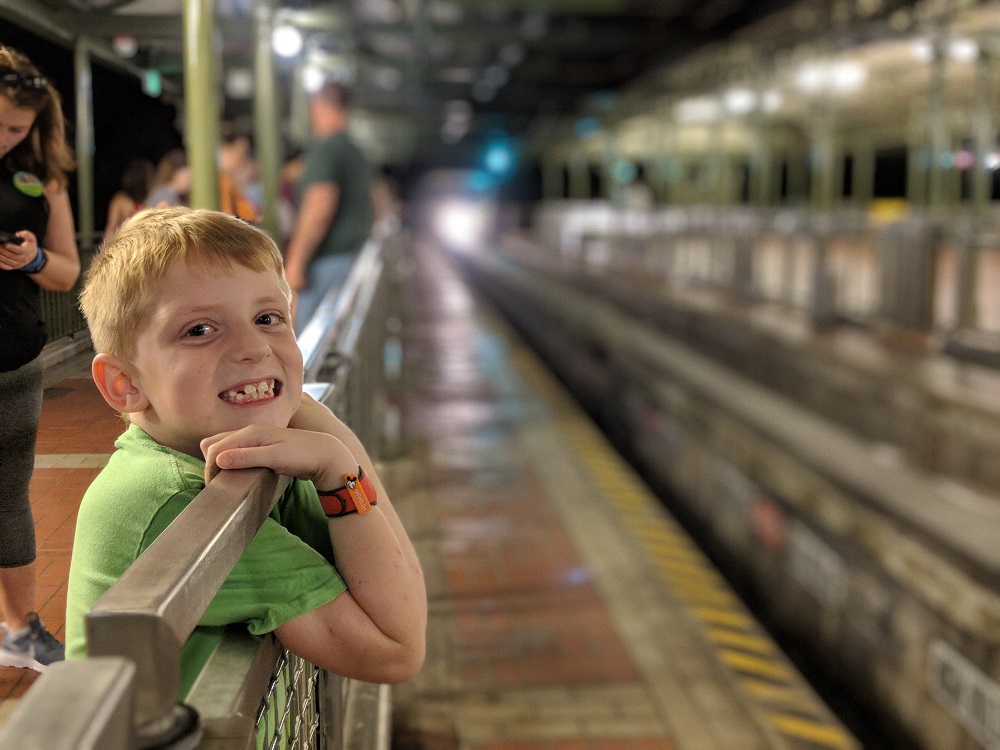Photography and physics
posted by Jeff | Monday, February 26, 2018, 8:32 PM | comments: 0Phone photography has come a long way in the last few years. The sensors have gotten to the point where a lot of the quality is now deferred to the software in terms of color preferences, noise reduction and lately depth of field. I'll freely admit that I'm surprised at how far things have come, relative to the ability of SLR cameras. I wouldn't do engagement photos with a phone, but the quality gap sure has shrunk a bit.
The latest high end phones are doing tricks with depth of field using distance data and an algorithm. Using two cameras (Apple) or different pixels in the same camera (Google), they figure out how far away stuff is and blur it as if it were being viewed through a lens with an open aperture. The Google way of doing this is more or less the same way that Canon calculates auto-focus in its cameras (and it works really well, apparently). I think it's a convincing effect (see below, as shot on my Pixel 2), and most of the time it feels like something I would shoot on an SLR. Probably 1 in 10 times, something about it feels fake, or it didn't get a good distance read and something isn't blurry when it should be. Even in my sample, look at the woman's foot in the lower left.
Getting great results with shallow depth of field usually works best with a long lens. That's why sports photography tends to isolate the moment so well, because the background is often indecipherable. The algorithmic depth of field on phones mostly works with portraits of humans. It doesn't make sense in most wide angle photos otherwise. Even my sample below may not make the most sense. So the question then, in my mind, is can we achieve the "long lens" capability on phones? My guess is that it's going to be awhile.
You could probably argue that a phone can have enough pixels to allow field cropping as a zoom. There have been phones with a 40+ mega pixel sensor already, and in practical terms, for online use and even in prints, anything over 20 is probably overkill. But phones have lenses as wide as a 28mm equivalent to a standard SLR camera, which is already pretty wide. Assuming you have 40 megapixels to start with, going to a 200mm zoom equivalent, which is merely an OK zoom, would leave you with less than 10 megapixels to work with. My Pixel 2 starts with 12, so cropping that would get you down to something like HD video, which looks great in motion, and terrible as a still. Plus there are likely to be issues with the measured distance with so little data.
I theorize that the only way you make this work on a phone is to have larger sensors with more dense pixels, which from a pure physics standpoint eventually gets in the way of the amount of light you can collect, or, you find some way to make an actual, optical zoom lens more compact. The latter sounds like a really hard problem to solve. I have one of the less expensive versions of a 70-200mm zoom, and it has 16 separate pieces of glass in it, and it can't do wide angle at all. More pixels sound possible, but I don't know what the constraints are on the dual pixel scheme are. My armchair technologist opinion is that it would be a tougher nut to crack.
Maybe it doesn't matter. The cameras in my last three phones (Pixel 2, Pixel and Nexus 5X) have been so good that I'm not compelled to bust out the SLR's, or even my Lumix with the exquisite 12-35mm micro-4/3 lens, very often. I use the SLR's when I'm doing something quasi-pro like shooting a charity race, fireworks, or any night time exposure, because you need the manual exposure, or maybe a birthday party. I took the Lumix with me to Alaska (glad that I did), but for every cruise since it's been phone only. Every year I take more photos with my phone than the year before.
I'm naive to think that clever people will never figure out the science of putting SLR capability into a tiny package. Fortunately, even with the technological leaps we've seen, there is still a difference between "taking pictures" and "photography." That's pretty uppity of me to say, but let's just say that YouTube hasn't made everyone a filmmaker either.
Comments
No comments yet.
